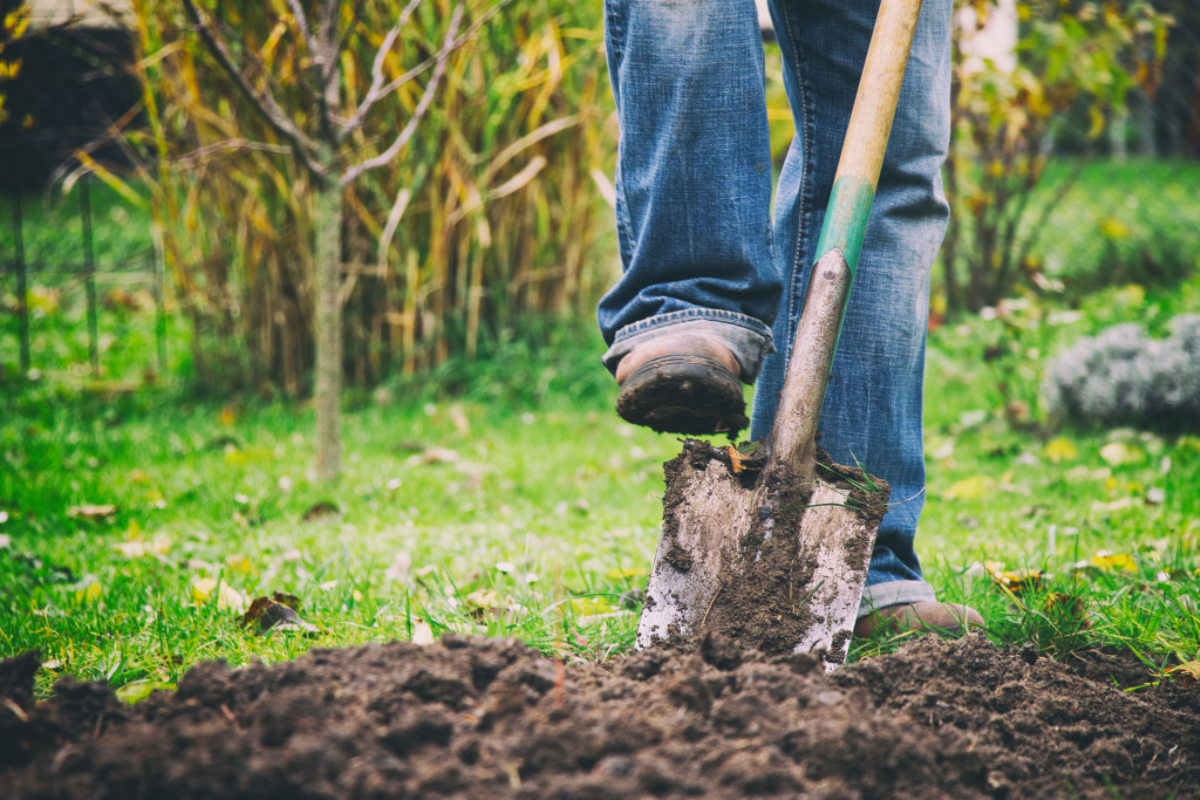Gas lines are a vital component of any home, ensuring a steady supply of fuel for your appliances and heating systems. However, they can also be a source of potential danger if not properly maintained or if issues go unnoticed. At Service by Scott, we understand the importance of safe and efficient gas line systems, which is why we’ve prepared this comprehensive guide to help you understand the common causes of gas line problems and how to address them.
Gas line issues can range from minor inconveniences to major safety hazards, making it crucial to be informed about their potential causes and solutions. In this guide, we’ll explore the fundamental components of gas line systems, identify the common culprits behind gas line problems, and provide you with essential tips on preventing and responding to these issues.
Whether you’re a homeowner concerned about the safety of your gas lines or a business owner in need of commercial plumbing services, this article will equip you with valuable insights and practical advice to ensure the smooth operation of your gas line system. Service by Scott, with over 30 years of experience in serving Tyler County and its neighbors, is committed to your safety and satisfaction. Let’s dive into the world of gas lines and learn how to keep them running smoothly.
Understanding Gas Line Systems
Gas line systems are a critical part of your home, responsible for delivering natural gas to power various appliances, from stoves and water heaters to heating systems. Understanding how these systems work is the first step in recognizing potential issues and ensuring their proper maintenance.
Components of a Gas Line
A typical gas line system comprises several key components:
- Gas Meter: This is the point where your home connects to the main gas supply. The gas meter measures the amount of gas you consume, making it an essential part of your billing process.
- Gas Line Pipes: Gas lines are usually made of durable materials like steel or copper. These pipes transport natural gas from the meter to different parts of your home.
- Shut-off Valve: Every gas line should have a shut-off valve. In case of an emergency or when you need to perform maintenance, shutting off the gas supply is crucial.
- Appliance Connectors: These short pipes connect the gas line to individual appliances. They may include flex connectors to allow for movement.
How Gas Flows into Your Home
Natural gas is supplied to your home through underground pipes, often from a local utility company. The gas travels through these pipes, eventually reaching your gas meter. From the meter, it’s distributed through the gas line pipes and into your appliances. Proper pressure regulation ensures a steady supply of gas, allowing your appliances to function effectively.
Why Gas Line Maintenance Matters
Regular maintenance of your gas line system is essential for several reasons:
- Safety: A well-maintained gas line system is less likely to develop leaks or other issues that can lead to dangerous situations.
- Efficiency: Maintaining your gas line ensures efficient gas flow to your appliances, saving you money and reducing energy waste.
- Longevity: Routine maintenance can extend the lifespan of your gas line components, reducing the need for costly replacements.
By understanding the components of your gas line system and how gas flows into your home, you’ll be better equipped to recognize and address any issues that may arise. In the following sections, we’ll delve into the common causes of gas line problems and the steps you can take to prevent and respond to them effectively.

Common Causes of Gas Line Issues
Understanding the common culprits behind gas line problems is essential for maintaining a safe and efficient gas system in your home or business. Here, we’ll explore some of the primary causes of gas line issues and provide insights into how to address them effectively.
Corrosion and Rust
Signs of Corrosion: Over time, gas line pipes can succumb to corrosion and rust, weakening their structure. Signs of corrosion may include discolored or flaking pipe surfaces, the presence of rust, or even a sulfur-like odor. If left unaddressed, corrosion can lead to gas leaks, posing a significant safety hazard.
Preventive Measures: Regular inspections by a licensed technician can help identify corrosion early. Installing corrosion-resistant materials, such as coated steel pipes, can also prevent this issue. Additionally, keeping the area around the gas line well-ventilated can reduce moisture levels, which contribute to corrosion.
Professional Inspection: Periodic inspections by trained professionals are crucial to ensure the integrity of your gas line system. They can assess the extent of corrosion, recommend repairs or replacements, and carry out the necessary work safely.
Physical Damage
Identifying Physical Damage: Gas lines are often hidden from view, making them vulnerable to physical damage caused by construction, excavation, or even simple accidents like digging in your yard. Common signs of physical damage include dents, dings, or visible cracks in the gas line.
Repair and Replacement Options: If physical damage is minor and doesn’t compromise the gas line’s integrity, it may be repairable. However, in cases of significant damage or if safety is a concern, replacement might be necessary. A licensed technician can assess the damage and recommend the appropriate solution.
Safety Considerations: Physical damage to gas lines can lead to gas leaks or other safety hazards. If you suspect physical damage, it’s essential to prioritize safety and act promptly by contacting professionals for inspection and repairs.
Gas Leaks
Detecting Gas Leaks: Gas leaks are perhaps the most critical issue to address promptly. Signs of a gas leak include a rotten egg-like odor (added to natural gas for detection purposes), hissing sounds near the gas line, or dead or dying vegetation above the gas line.
Immediate Steps to Take: If you suspect a gas leak, evacuate the area immediately and avoid using any electrical appliances or open flames. Do not attempt to locate the leak yourself. Instead, call your gas company or emergency services to report the issue.
Professional Gas Leak Repair: Gas leaks are emergencies and should be handled exclusively by trained professionals. Licensed technicians have the expertise and equipment required to pinpoint and repair gas leaks safely.
Understanding these common causes of gas line problems is the first step in maintaining a safe and efficient gas system. At Service by Scott, your safety and satisfaction are our top priorities. With our expertise, dedication, and commitment to excellence, you can trust us with all your gas line needs. We are available 24/7 for emergency services, ensuring that you have a reliable partner to turn to in times of need. Whether you’re a homeowner or business owner, count on Service by Scott for all your gas line service requirements. In the next sections, we’ll delve into preventive measures and the steps to take in response to gas line issues, ensuring the safety and functionality of your gas line system.

Preventing Gas Line Problems
Preventing gas line problems is not only about ensuring the safety of your home or business but also about avoiding costly repairs and disruptions. In this section, we’ll explore key preventive measures you can take to maintain a safe and efficient gas line system.
Regular Maintenance
At Service by Scott, we recognize that regular maintenance is a cornerstone of a safe and efficient gas line system. Our licensed technicians specialize in conducting routine inspections that comprehensively assess your entire system, including the gas meter, line pipes, shut-off valve, and appliance connectors.
These inspections enable us to detect early signs of issues like corrosion, physical damage, or wear and tear, allowing for prompt repairs or replacements. This proactive approach not only ensures the safety of your gas system but also extends the lifespan of its components, ultimately saving you money in the long run. Trust Service by Scott for professional and thorough maintenance to keep your gas line system in optimal condition.
Landscaping and Gas Lines
The landscaping around your home can inadvertently impact your gas line system. Tree roots, for instance, can intrude upon gas lines and cause damage over time. To prevent this, it’s essential to plan your landscaping carefully:
- Choose Plant Locations Wisely: When planting trees or large shrubs, ensure that they are positioned a safe distance away from your gas line to prevent root intrusions.
- Regular Inspection: Periodically check the area around your gas line for any signs of root interference. Early detection can prevent potential issues.
- Professional Advice: Consult with a professional landscaper or arborist to understand the types of plants that are less likely to damage your gas lines.
Safe Landscaping Practices
In addition to careful plant placement, there are other safe landscaping practices you can adopt to prevent gas line issues:
- Call Before You Dig: If you plan any excavation work on your property, such as installing a new fence, consider hiring a professional to ensure that gas lines are not accidentally damaged. In many areas, there are specific services you can contact to mark the location of utility lines.
- Properly Mark Gas Line Locations: If you are aware of the location of your gas lines, mark them clearly to avoid any accidental damage during construction or landscaping projects.
Preventing gas line problems through regular maintenance and safe landscaping practices is a proactive way to ensure the safety and efficiency of your gas line system. By taking these measures, you can reduce the risk of costly repairs and potential safety hazards. In the upcoming sections, we’ll discuss how to respond to gas line issues and provide you with essential guidance on keeping your gas lines in optimal condition.
Responding to Gas Line Issues
Understanding how to respond to gas line issues is as crucial as knowing how to prevent them. Gas line problems, if left unaddressed, can escalate quickly, potentially leading to hazardous situations. In this section, we’ll guide you through the necessary steps to take in the event of a gas line issue, and we’ll emphasize the invaluable assistance that Service by Scott can provide.
Emergency Response
Gas leaks are emergencies that require immediate action. If you detect signs of a gas leak, such as the distinctive rotten egg odor or a hissing sound near the gas line, it’s vital to respond quickly and decisively. Your safety and the safety of those around you are of utmost importance.
- Evacuate the Area: If you smell gas or suspect a leak, evacuate the area immediately. Do not linger or try to locate the source of the leak. Even small sparks or open flames can ignite a gas leak.
- Do Not Use Electronic Devices: Avoid using electronic devices, switches, or anything that could create sparks. These can ignite gas fumes.
- Ventilate the Area: If it’s safe to do so, open windows and doors to allow fresh air to circulate and disperse the gas.
- Call for Help: Dial emergency services and your gas company to report the gas leak. It’s essential that professionals handle the situation from this point forward.
DIY Gas Line Repairs
While emergency response to gas leaks should be left to professionals, there are specific scenarios where you may need to take immediate action to prevent further issues:
- Shut Off the Gas: If you can safely access the shut-off valve, turn it off to stop the gas flow. This step can help minimize the risk of an incident while you wait for professional assistance.
- Open Windows and Doors: Ventilate the area by opening windows and doors. This further reduces the concentration of gas.
- Do Not Attempt Repairs: Under no circumstances should you attempt DIY repairs on a gas line. Leave this work to qualified technicians who have the necessary training and equipment.
When to Call a Professional
Gas line issues are not suitable for DIY repairs. Even if a situation appears minor, it’s best to contact professionals to assess the problem. Service by Scott has a team of licensed technicians experienced in handling all aspects of gas line repairs and maintenance. We emphasize that safety is paramount when dealing with gas line issues, and our experts are equipped to handle any situation, from minor repairs to complex issues.
Our 24/7 emergency service ensures that you have a reliable partner to turn to in critical moments. Don’t take chances with your safety or the safety of your property – call Service by Scott for professional assistance when you encounter gas line issues.

Service by Scott’s Gas Line Expertise
When it comes to the safety and efficiency of your gas line system, entrusting the services of professionals with proven expertise is of paramount importance. Service by Scott, a family-owned and operated full-service plumbing and maintenance company in Woodville, Texas, stands as a trusted name with over 30 years of experience serving Tyler County and its neighboring communities.
Our Licensed Technicians
At the heart of our gas line expertise lies our team of licensed technicians. Each technician is carefully selected, rigorously trained, and continuously updated on industry standards and safety protocols. We understand that working with gas lines demands precision and a profound understanding of the intricacies of the systems involved. Our commitment to your safety and satisfaction drives us to maintain the highest level of competence in our team.
Our Gas Line Services
Service by Scott offers a comprehensive suite of gas line services tailored to meet your unique needs. Whether you’re a homeowner concerned about gas line safety or a business owner requiring commercial gas line services, our expertise covers the spectrum of requirements:
- Leak Detection and Repair: Gas leaks are not only dangerous but also insidious, often manifesting with subtle signs. Our technicians are trained to employ advanced tools and techniques to detect leaks efficiently. Once detected, we act promptly and professionally to repair them, ensuring the safety of your premises.
- Gas Line Installation and Inspection: If you’re installing a new gas line system or need routine inspections to guarantee its integrity, our expertise comes to the forefront. Our technicians conduct thorough inspections, identifying potential issues before they evolve into major problems. We bring peace of mind to homeowners and business owners alike, knowing their gas lines are in expert hands.
Service by Scott believes that your safety is non-negotiable. Our dedication to providing safe, efficient, and reliable gas line services is reflected in our unwavering commitment to excellence. With a team of licensed technicians and a comprehensive range of services, we’re your trusted partner for all things related to gas lines. Whether you require installation, inspection, or repairs, you can rely on Service by Scott to ensure that your gas line system is in optimal condition.
Conclusion
In the journey through this guide, you’ve gained valuable insights into the world of gas line systems. Understanding the common causes of gas line issues, the importance of regular maintenance, and the necessary steps to respond to emergencies are pivotal to ensuring the safety and efficiency of your gas system. Alongside these insights, you’ve learned about Service by Scott, a family-owned and operated plumbing and maintenance company with over 30 years of experience serving Woodville, Texas, and its neighboring areas.
Service by Scott has continually demonstrated a commitment to excellence in gas line services. Our licensed technicians, equipped with extensive expertise and a profound understanding of gas line systems, are dedicated to your safety and satisfaction. Whether it’s detecting and repairing gas leaks or conducting inspections and installations, we’re your trusted partner in maintaining a secure and efficient gas line system.
As you reflect on the wealth of information provided in this guide, remember that when it comes to your gas line system, safety should always be the priority. When issues arise, or if you’re due for routine maintenance or inspections, don’t hesitate to reach out to Service by Scott. Our 24/7 emergency service ensures that help is always just a phone call away. Your safety and peace of mind are our top concerns, and we’re ready to address your gas line needs promptly and professionally.
Contact Service by Scott today to benefit from our expertise and commitment to excellence in gas line services. Your gas line system deserves the best, and we’re here to deliver it.
FAQs
What are the common signs of a gas line issue?
Common signs of a gas line issues include a distinct rotten egg-like odor, hissing sounds near the gas line, or the presence of dead or dying vegetation above the gas line. If you notice any of these signs, it’s essential to take immediate action and contact a professional.
Can I use a gas leak detection kit?
While gas leak detection kits are available, we strongly recommend against attempting to use them without proper training. Gas leaks can be extremely dangerous, and detecting and addressing them should be left to licensed professionals who have the expertise and equipment to handle such situations safely.
How often should I schedule gas line inspections?
It’s advisable to have your gas line system inspected regularly. The frequency of inspections can vary depending on factors like the age of your system, local regulations, and the presence of potential risk factors like nearby trees. Service by Scott recommends scheduling an annual inspection to ensure your system’s integrity.
Are there DIY solutions for minor gas line issues?
While it’s tempting to consider DIY solutions for minor issues, gas line problems are not suitable for DIY repairs. Even seemingly small problems can have severe consequences if not addressed correctly. For your safety and the safety of your property, it’s always best to rely on trained professionals.
What should I do if I suspect a gas leak in my home?
If you suspect a gas leak, evacuate the area immediately. Do not use electronic devices, open flames, or switches, and avoid creating sparks. Ventilate the area by opening windows and doors if it’s safe to do so. Dial emergency services and your gas company to report the leak. It’s essential to leave gas leak detection and repair to qualified professionals who can handle it safely.

